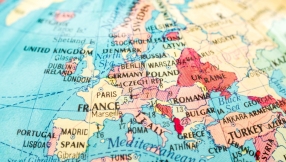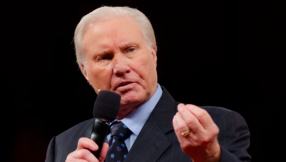Pope scraps university visit after protests
The protest began with a petition by 67 professors who portrayed the German-born Pope as a backward theologian who put religion before science and should not be allowed to speak.
After resisting calls by protesters to scrap his speech at La Sapienza university, the Vatican said on Tuesday the Pope had decided to postpone the visit.
"I deeply regret Pope Benedict's decision," Italian Prime Minister Romano Prodi said, inviting him to reconsider.
"No voice should be silenced in our country, and all the more so when it comes to the Pope."
The protesters cited a speech he gave nearly two decades ago, saying it showed he would have favoured the Church's 17th century heresy trial of Galileo for teaching that the Earth revolved around the sun. The Pope's supporters denied that.
The controversy ballooned into a fierce debate that divided Italians, protesters questioning the Church's role in secular society and the Church and free-speech advocates accusing the protesters of censorship.
"I think the Pope's visit is not a good thing because science doesn't need religion. The university is open to every form of thought but religion isn't," said Andrea Sterbini, a computer science professor and one of the signatories.
One student protest banner read: "The Pope is holding La Sapienza hostage. Free the thinkers".
CLIMATE OF INTOLERANCE
The debate drew unusual allies for the Pope. Dario Fo, a Nobel prize winner and outspoken critic of the Church, defended the Pope's right to speak.
"I'm against any form of censorship because the right to (free) speech is sacred," the writer told La Repubblica daily.
Politicians including Prodi complained of a climate of intolerance in Italy, but Prodi's opponents said the government should have done more to guarantee free speech. "It's a very painful surprise that injures and humiliates ... the state, which couldn't ensure freedom of expression," said former prime minister Silvio Berlusconi.
La Sapienza was founded by a pope 705 years ago, and the chancellor who invited Pope Benedict to speak said the incident was food for thought for "believers and non-believers".
Much of the debate centred on a speech the Pope gave in 1990, when then-Cardinal Joseph Ratzinger quoted an Austrian philosopher saying the Galileo trial was "rational and just".
The Pope's defenders say the quotation did not reflect his own position, but that failed to quell the protests.
By arguing that the Earth revolved around the sun, Galileo had clashed with the Bible, which read: "God fixed the earth upon its foundation, not to be moved forever."
Another quote the Pope used in 2006 upset Muslims around the world. In a speech at a university in his native Germany, he quoted a 14th century Byzantine emperor as saying Islam had only brought evil to the world and that it was spread by the sword.
The Pope said he was misunderstood and has several times expressed his esteem for Muslims.













